SLEEP DISORDERS
What are Sleep Disorders?
Sleep disorders are conditions that disrupt regular sleep patterns, making it difficult to sleep well consistently. They can affect overall health, safety, and quality of life. Common symptoms include excessive daytime sleepiness, difficulty falling or staying asleep, irregular breathing, or unusual movements during sleep. Sleep disorders can impact physical, mental, and emotional well-being, requiring proper diagnosis and treatment for improvement.

Types of Sleep Disorders
- Insomnia: Difficulty falling asleep, staying asleep, or waking up too early and not being able to go back to sleep.
- Sleep Apnea: Breathing repeatedly stops and starts during sleep. The most common type is obstructive sleep apnea.
- Restless Legs Syndrome (RLS): An uncontrollable urge to move the legs, usually because of uncomfortable sensations.
- Narcolepsy: Excessive daytime sleepiness and sudden attacks of sleep, often accompanied by cataplexy (sudden loss of muscle tone).
- Circadian Rhythm Disorders: Problems with the sleep-wake cycle, such as delayed sleep phase disorder or shift work disorder.
6. Parasomnias: Unusual behaviors during sleep, such as sleepwalking, night terrors, or REM sleep behavior disorder.
Causes of Sleep Disorders
The causes of sleep disorders vary and can include:
– Medical Conditions: Chronic illnesses, respiratory problems, or pain.
– Mental Health Disorders: Anxiety, depression, and stress.
– Lifestyle Factors: Poor sleep habits, irregular schedules, and substance use.
– Genetic Factors: Family history of sleep disorders.
– Environmental Factors: Noise, light, and temperature.
Symptoms of Sleep Disorders
Symptoms depend on the specific disorder but may include:
– Difficulty falling asleep or staying asleep
– Excessive daytime sleepiness
– Loud snoring or gasping for air during sleep
– Uncomfortable sensations in the legs or arms
– Sudden muscle weakness
– Irregular sleep-wake patterns
– Unusual behaviors during sleep
Managing Sleep Disorders
Managing sleep disorders often involves a combination of lifestyle changes, behavioral therapies, and medical treatments. Strategies include:
– Sleep Hygiene: Maintaining a regular sleep schedule, creating a restful environment, and avoiding caffeine and electronics before bed.
– Cognitive Behavioral Therapy for Insomnia (CBT-I): A structured program to help identify and replace thoughts and behaviors that cause or worsen sleep problems.
– Medications: Prescription medications or supplements like melatonin to help manage symptoms.
– Medical Devices: CPAP machines for sleep apnea or leg compression devices for restless legs syndrome.
– Lifestyle Changes: Regular exercise, healthy diet, and stress management techniques.
Treatment for ADHD

ADHD can be effectively managed with a combination of treatments, which may include:
– Medications: Stimulants (e.g., methylphenidate, amphetamines) and non-stimulants (e.g., atomoxetine, guanfacine)
– Behavioral Therapy: Helps develop positive behaviors, organizational skills, and coping mechanisms
– Skill Training: Attention retraining & Hyperactivity management
– Counseling and Psychotherapy: For individuals and families to address emotional and social issues
– Educational Support: Special education services, individualized education programs (IEPs), and classroom accommodations
You've taken the first step now let us help you find the right support
Recognizing Clinical Depression
– Lasting sadness
– Loss of interest in most activities
– Constant fatigue or low energy
– Negative thoughts
– Feelings of worthlessness, hopelessness, or guilt
– Difficulty concentrating on daily tasks
– Changes in eating and sleeping patterns
– Restlessness or irritability
– Physical aches and pains without a clear cause
– Thoughts of death or suicide
Signs Your Child
Needs to See a Child psychiatrist
Recognizing when your child may need to see a psychiatrist is crucial for addressing their emotional and mental well-being. Here are some signs that may indicate it’s time to consider seeking help from a Child Psychologist in Calicut:
- Your child is dealing with a significant change or a stressful situation, like bullying, a health issue, divorce parents, or a move to a new city or school.
- Your child's mental, emotional, and behavioral problems seem to be getting worse over time instead of better.
- Your child or family has experienced trauma, such as a death, an accident, or abuse.
- Your child encounters challenges when it comes to forming and maintaining friendships.
- You notice big notable shifts in your child's temperament and behavior.
- They often have trouble with their behavior in school.
- Your child is worrying to much for trivial things
- Your child's grades are dropping.
Common Conditions Addressed at Our Center
Clinical child psychology is a field dedicated to researching, evaluating, and addressing a broad spectrum of interconnected biological, psychological, and social challenges encountered by children.

ANXIETY
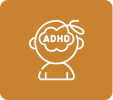
ADHD

DEPRESSION

AUTISM

LEARNING PROBLEMS

BEHAVIOURAL PROBLEMS

ADJUSTMENT PROBLEMS

STRESS
At Mind Weavers, our Child Psychologists are well-versed in the latest evidencebased interventions, providing personalized counseling to address the unique needs of each child.
Skills and Procedures Utilized
Clinical child psychology encompasses a wide range of procedures and skills addressing your child’s needs, including:
- Assessment (e.g., psychological, intellectual, cognitive, and behavioral evaluation).
- Intervention (e.g., psychotherapy and applied behavior analysis).
- Prevention program development (e.g., school readiness,bullying, addictions, obesity).
- Consultation with transdisciplinary team
- Evidence based Practices

Services Offered By Our Center
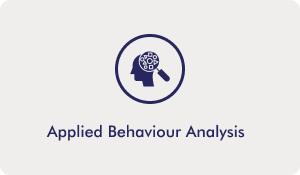


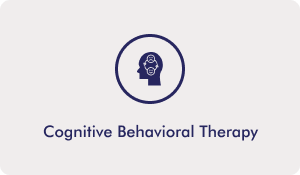
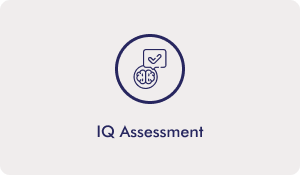
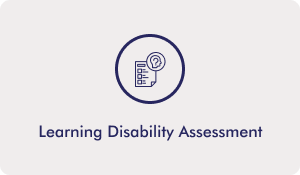


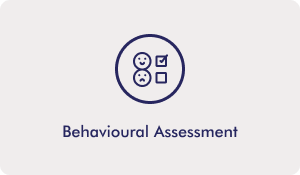
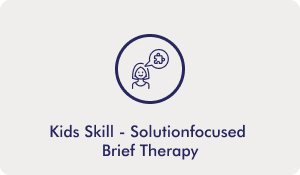
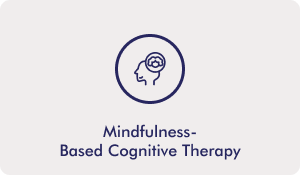
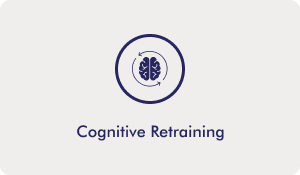


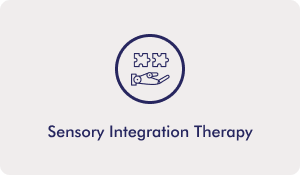
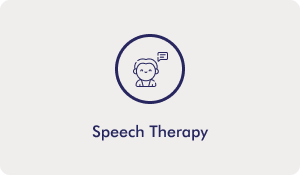
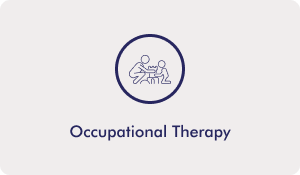
These services are administered by experienced and compassionate clinical psychologists and therapists that ensure your child receives the care and support they need to lead healthier and more fulfilling lives.
FAQs on Sleep Disorders
Sleep disorders are conditions that impair the ability to sleep well regularly, affecting overall health, safety, and quality of life.
Sleep disorders are diagnosed through a combination of medical history, sleep diaries, physical exams, and specialized tests.
Yes, sleep disorders can be treated with a combination of lifestyle changes, behavioral therapies, medical treatments, and sometimes medications or medical devices.
Personality disorders are believed to result from a combination of genetic, environmental, and psychological factors, including family history, childhood trauma, and neurological differences.
Insomnia can be caused by stress, anxiety, depression, poor sleep habits, medical conditions, medications, or lifestyle factors.
Improving sleep hygiene involves maintaining a regular sleep schedule, creating a restful sleep environment, avoiding caffeine and electronics before bed, and establishing a relaxing bedtime routine.
Sleep apnea is a disorder where breathing repeatedly stops and starts during sleep. It is commonly treated with lifestyle changes, CPAP therapy, oral appliances, or surgery.
Yes, mental health disorders such as anxiety and depression can significantly affect sleep patterns and contribute to sleep disorders.
If you think you have a sleep disorder, consult a healthcare professional for a thorough evaluation and appropriate diagnosis and treatment plan.
Help for sleep disorders can be found through:
– Sleep specialists and sleep centers
– Mental health professionals
Mind Weavers for Adult Psychology -
Why We're Different?
✨Experience:
Mind Weavers stands out in the field of adult psychology for several reasons. Our team of licensed professionals brings a wealth of experience in dealing with adult psychological issues. We understand that adulthood is a time of significant transition and are committed to helping you navigate this period with empathy and expertise.
✨Understanding Issues from The Root:
We support a comprehensive strategy for mental health. Hence, it means we don’t just focus on your symptoms; we explore the root causes of your challenges. Therefore, by addressing these underlying issues, we aim to provide long-lasting solutions that improve your overall well-being.
✨Supportive Environment:
Another reason to choose Mind Weavers is our commitment to creating a supportive environment. We know that discussing mental health can be difficult, which is why we prioritize creating a safe, non-judgmental space. Our goal is to make you feel comfortable and heard, ensuring that you can openly discuss your concerns and challenges.
✨Flexible Treatment Plans:
Additionally, we offer flexible treatment options tailored to fit your lifestyle. So, whether you prefer in-person sessions or online consultations, we make it easy to access the help you need. Our flexible scheduling and various therapy modalities ensure that you can find the right fit for your needs.
Therefore, take the first step towards a healthier adulthood by choosing Mind Weavers. Your mental well-being deserves the best care, and we’re here to provide it.
Choosing Mind Weavers for
Your Child's Well-Being
At Mind Weavers, our aim is to have a happy, playful, and confident child.
We prioritize your child’s well-being and offer top-quality mental health services to support their growth and happiness. Our dedicated professionals including child psychologists, therapists, and counelors help children overcome challenges, develop crucial life skills, and thrive emotionally.
At Mind Weavers, you’re choosing more than specialized services; you’re selecting a caring and nurturing environment that fosters resilience, self-assurance, and a positive outlook.


